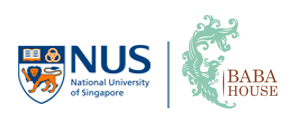APRU University Museums Research Symposium 2021
Universities and Architectural Heritage
15-16 November 2021
Postponement of the APRU University Museums Research Symposium 2020
The Association of Pacific Rim Universities (APRU) is a network of universities from Asia, Australasia and the Americas. The association established the APRU University Museums Research Symposium in 2012 to bring participants together for the sharing of research and education initiatives concerning their universities’ cultural and scientific collections.
This year, we will reflect on the research and preservation of architectural heritage and its place in the urban landscape. Architectural heritage involves multidisciplinary perspectives and collaborations which demonstrate expertise in science, culture, and the environment. Continuity and change have become crucial considerations when looking at our built environment and heritage buildings, as evident in recent examples of public health and climate concerns. The Asia-Pacific landscape especially provides a cross-cultural platform on which developments in architectural heritage research, education and practice can flourish, allowing ideas exchanged during the Symposium among universities, museums, and its collaborators to form a foundation upon which future research can be based.
Please find the Museum Symposium programme, session videos, and posters on the event website.
15 November
- Welcome address
- National University of Singapore, Baba House Conservation Video
- Opening Keynote
- Panel 1: Intangible Cultural Heritage
- Panel 2: Architectural History
16 November
- Welcome Address
- Introductory Remarks
- Panel 3: Urban Planning and Regeneration
- Panel 4: Sustainability and Conservation
Access the full Programme Booklet
Registration
- Attendance to the symposium is free.
For all attendees:
- Registration is required to attend this conference and must be done through Eventbrite.
- Registration opens on 13 Sep and closes on 14 November.
- Please note that this symposium is held entirely online.
Digital element:
- Due to Covid-19 affecting worldwide travel and aviation, the symposium will be 100% online, including post-symposium activities.
- Kindly note that all times reflected in the programme are in GMT +8, and that the programme may be subject to change.
Enquiries: [email protected]
For more details and to access the templates for submission, please visit https://blog.nus.edu.sg/aprusymposium
Organisers:


With the support of:
 .
. 
